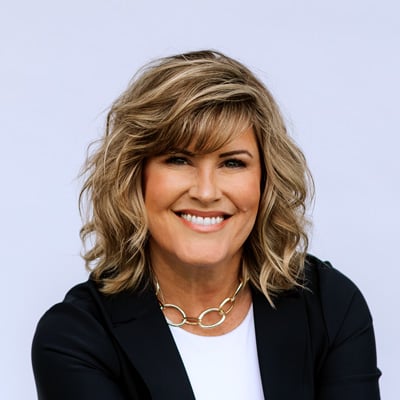Jul 01 2024 / Round the Table Magazine
Bringing attorneys and accountants into the fold
Topics Covered
Here’s a familiar scenario: You’ve consulted with your client and set a plan only to have their accountant or attorney block the deal at the last moment.
Rather than having all that hard work go to waste, MDRT members have developed strategies to lay the groundwork for cooperating with accountants and lawyers, so their advice is less likely to get rejected.
They recommend bringing in members of a client’s financial decision-making team early. Advisors who explain their vision clearly and work closely with accountants and lawyers can turn a potentially adversarial relationship into one of mutual benefit. These approaches serve not only to help avoid miscommunication and close deals more reliably; they can also grow an advisor’s business through new relationships and referrals.
Bring them in early, elevate them
Building relationships with attorneys and accountants early in the process is key to avoiding unexpected decisions later, according to Twyla Dawn Hardham, CFP, a seven-year MDRT member from Kelowna, British Columbia, Canada.
Hardham starts working with other members of a new client’s financial team at the very beginning. “I typically meet with my client and tell them, ‘I’m just part of your overall team, so I’d like to speak with your lawyer and your accountant and discuss what I’m suggesting for you,’” she said. “They may know things that I don’t.”
Her goal is to elevate and establish them as members of a collaborative team. Hardham never meets with the client and their accountant at the same time, so the accountant never appears uninformed or unprepared. Meeting with the accountant separately creates a place where they can freely ask questions, Hardham said.
“I’ve had huge buy-in from all professionals when I do that,” she said. “In the past, I used to get a ton of pushback. I’d bring them in at the end, and they’d put the kibosh on it. So, I’ve learned to bring them in early and bring them in solo.”
Ask questions, have answers
Asking questions early can also help advisors anticipate an accountant’s next move and guide them to a favorable outcome.
For instance, an accountant who is generally opposed to a particular retirement product could become problematic for an advisor who frequently recommends them, according to Rebecca J. Gonzalez, CFP, CLU, an eight-year MDRT member from Spencer, Wisconsin, USA.
Gonzalez said she often invites accountants to lunch and directly asks them why they’re averse to the retirement strategy. “From your point of view, why is it not the best option?” she asks. “Maybe there’s something you the advisor don’t see — probably not — but through that conversation, you’re inviting them to educate you.”
The move positions her to explain her own perspective “and it will be better received because you’re asking for their expertise in the process,” she said.
Darren W. Ulmer, CFP, CLU, a 15-year MDRT member from Saskatoon, Saskatchewan, Canada, also said that meeting with an accountant and asking questions early can help advisors lead the accountants to their own point of view.
“I like to ask the accountant, ‘What do you see as the biggest problem they’re facing right now, and what do you see as the solution?’” Ulmer explained.
The accountant’s response is often focused on the wind down of the client’s business, getting money out of the corporation down the road, and the tax consequences in the case of a client’s early death, Ulmer said.
“When I ask them what they think the solution for that scenario should be, they say, ‘Well, life insurance would probably be a good idea,’” he said. “Then I ask them if it’s something they can get behind.”
Information sharing
Establishing a clear line of communication when sharing financial information can also be a useful touch point for building relationships.
Sharing information can be an opportunity to assist the legal team and bring value to the relationship, according to Anthony G. Engrassia, ChFC, LUTCF, a 28-year MDRT member from Atlantic Beach, North Carolina, USA.
Engrassia said he works to provide clients’ lawyers with estate documents early in the process. “We have a form that we fill out because that’s the first thing you need to have in order to discuss their estate documents,” he said.
Handing that information over to the attorney saves them a step, which they appreciate, and it can save the client time and money, Engrassia said. “I tell the client, ‘If we do this now, you won’t have to do it on the attorney’s time.’”
That equation can work in the opposite direction, too, with the financial advisor benefiting from work done by accountants, according to Ulmer. “We tell the client that we need all of your financials and everything from the accountant, and if they do charge you, please direct that charge to us,” he said. “In the last seven years, I have never had a bill from the clients’ advisors.”
Bringing new business
While establishing strong connections with a client’s financial team can bring in new business through referrals, conversely, it can help build a lawyer’s practice, further strengthening the relationship. Estate planning attorneys depend on referrals because they cannot solicit on their own, noted Benjamin Harding, CFP, ChFC, a 20-year MDRT member from Burlington, Massachusetts, USA. “So, they rely heavily on our relationships to bring them the business,” he said, recommending that financial advisors start off early building these bridges.
Strong bonds with estate attorneys can also add legitimacy to a financial advisor’s practice, Gonzalez added, explaining that her firm brings an attorney into the office twice a month to meet with clients to discuss estate planning.
The attorney frequently discusses long-term care with clients, which is a topic that can be a tough sale for financial advisors, Gonzalez said. The attorney notes during the meeting that the coverage is one Gonzalez had already mentioned to the client and suggests taking her advice.
“I’m not necessarily getting referrals, but because of the attorney relationship, he solidifies the recommendations that I have, and usually that is enough to help close the deal,” she said.









![Four essential things financial advisors in India should do to grow their skills [Deepak Agrawal]](https://members.preprod.mdrt.org/globalassets/digizuite/33706-en-india_written-interview_deepak_agarwal_thumbnails.png?height=268&width=268&mode=crop)

![The role of insurance in estate planning in India [Mathew P. Joseph]](https://members.preprod.mdrt.org/globalassets/digizuite/33576-en-india_written-interview_mathew-joseph_thumbnails.png?height=268&width=268&mode=crop)
